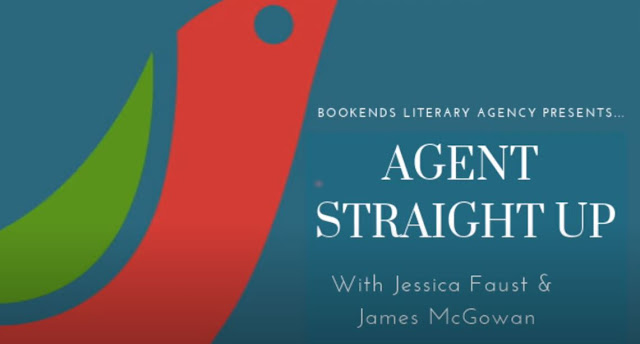 |
| Photo: courtesy Wikipedia |
Sad, but true...I was suckered by an agent. I paid $300 for literary services not knowing that this was a dishonest practice. It just goes to show how little I knew about publishing.
Back in the late 90s, I had enrolled in my first writing class at the Carnegie Center for Literacy in Lexington, Kentucky. Our assignment was to complete a picture book by the end of the six-week session. On the last day of class our teacher brought in a local agent. She passed out her business cards and I jumped at the chance to be represented.
It never dawned on me that Karen would be unethical. All I knew was that she was a nice person whom my writing instructor had recommended. She invited me to her house for a business lunch. During the meeting, she discussed her plans for presenting my work to publishing houses. All seemed legit to me. Even the money she needed to get the job done. She was excited about my work and I was thrilled to have an agent who knew the publishing industry.
When we finished our business, she scheduled the next meeting and mentioned that she'd need another payment for more of her services. At that moment something didn't seem right to me. When I got home, I contacted a local author to find out whether writers should pay an agent. She warned me that writers should not be charged for an agent's services and suggested that I look into the Association of Authors' Representatives, a professional organization of literary agents who meet the highest standards and subscribe to a canon of ethics.
I immediately googled the website. According to the AAR, the practice of literary agents charging clients or potential clients is subject to serious abuse. For that reason, members may not charge clients or potential clients a fee and may not benefit, directly or indirectly, from the charging for their services.
It was no surprise that my agent was not a member of AAR. So, she was essentially free to charge writers for her services. But not me. I ended our relationship.
Now when I look back on the partnership, I realize that paying Karen was not the only problem—I had also given her the very first picture book I had ever written. How naïve was that? My manuscript desperately needed to be critiqued. It needed to be revised to improve the content. It needed to be edited to fix grammar, punctuation and sentence structure. It was not ready to be presented to publishing houses.
As they say, live and learn.
Fast forward to November, 2016. Believe it or not, I received an email from an agent on my birthday! Editorial agent Melissa Carrigee fell in love with my manuscript Maggie and the Summer Vacation Show-and-Tell. Together, we fine-tuned the text and collaborated with an artist to get the illustrations just right. Nine months later, my debut picture book was published.
My relationship with Melissa was wonderful and I wanted to work with her on future projects, but she decided to step away from agenting and to establish Brother Mockingbird Publishing. So, at this point in my career, I'm searching for a forever agent. Someone who is honest and professional like Melissa. I will never forget dishing out hundreds of dollars to someone who called herself an agent. What a costly mistake. But hopefully I'll be savvier when I sign with another rep. Because like the song sung by the Who—I "Won't Get Fooled Again."
✌ and ♥








